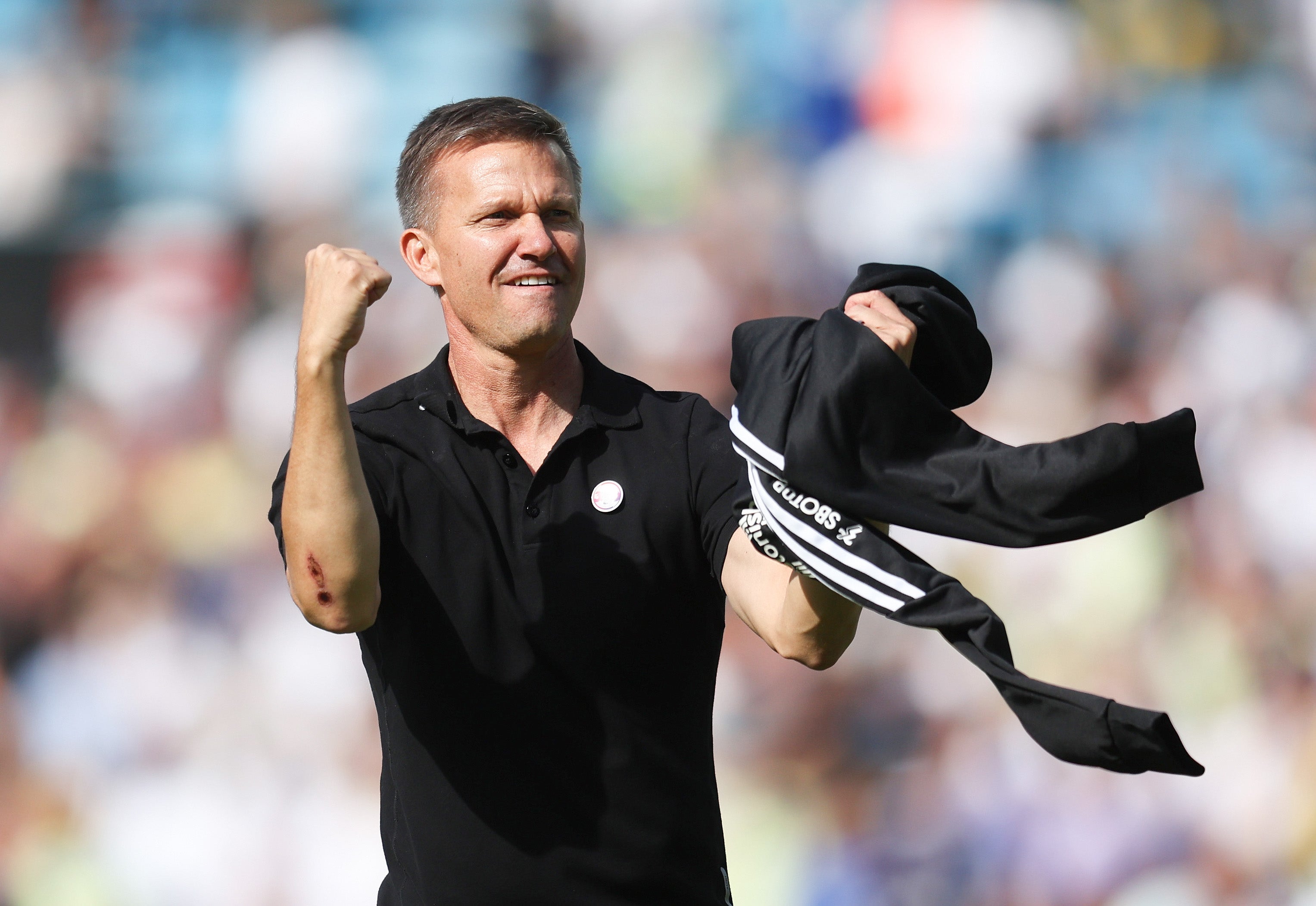
If it was a mission statement, it also seemed the sort of assertion that every manager ought to make. “Our goal is to never be outran, to never be outworked but also to never be outfought,” said Jesse Marsch after incessant running and a Stakhanovite work ethic forged the finest result of his reign. Chelsea were run ragged and worked over by Leeds. After the Battle of the Bridge against Tottenham, this was a fight conducted in race after race. Leeds kept winning them.
For some, the most damning statistic was not a 3-0 scoreline but the fact that Leeds ran 11km more than Chelsea. The strollers from the Kings Road lost out to the sprinters from Elland Road. But not, Thomas Tuchel insisted, because of the differences in distance covered. “It is nothing to do with pressing, nothing to do with running less kilometres and nothing to do with the style of Leeds,” he said. Arguing defeat stemmed from individual errors, rather than managerial blueprint or choices, could sound self-serving. “It is more our fault than anybody else’s credit,” he said, rather gracelessly.
Certainly Marsch’s case felt more compelling. “He can have his opinion,” said the Leeds manager. “I think our way of playing dictated the match almost entirely, limited them, made them make mistakes.” If errors that come from cumulative fatigue from being pestered for 90 minutes mean Leeds’ high-intensity approach can have an indirect influence on the outcome, some moments could be traced more directly to the Whites’ running power: Kalidou Koulibaly’s red card stemmed from fouls when Brenden Aaronson and Joe Gelhardt surged past him, Leeds’ second goal to Raheem Sterling’s illegal attempt to halt a similarly speedy Marc Roca.
Tuchel was touchy, arguing running statistics did not correlate to result. “All of you make the mistake that they run 11km more and we lose 3-0,” he said. But, and at the risk of stating the obvious, 11km is a lot: not quite the extra 14km Brentford ran compared to a lacklustre Manchester United team with a pronounced attitude problem last week but still an average of 1km per player; more if goalkeepers are omitted. It seems an indictment.
Tuchel seemed to deem it inevitable that Leeds would run further, though it is only 20 months since Frank Lampard’s Chelsea covered more ground than Marcelo Bielsa’s side in a 3-1 win; there is a theory that their efforts were so exhausting they led to a subsequent downturn that cost the Englishman his job.

Perhaps Tuchelball reduced the reliance on running. A greater attention to detail meant more coherence; defensively he closed the gaps between players. Two of Chelsea’s elder statesmen benefited. Jorginho can look fallible when isolated but he rarely has been under Tuchel, until he looked lonely at Leeds. Thiago Silva will be 38 soon, and it seems a case of cruelty to the elderly to force him to face Leeds. Tuchel’s usual gameplan involves keeping five players, two defensive midfielders and three centre backs, in a tight structure behind the ball but Leeds swamped Chelsea at times.
While he did not admit it, Tuchel’s decisions showed the significance of running. Ruben Loftus-Cheek is not particularly mobile but ended up at wing back, presumably because he did not trust Cesar Azpilicueta’s slowing legs and wanted Conor Gallagher’s energy in midfield. Chelsea missed the hyperactive N’Golo Kante but, as he is increasingly injury-prone, they often do and even he would not have made up an 11km differential himself. It is notable that one of Tuchel’s targets is Anthony Gordon. He may have had added reasons to wish last week’s bid was accepted by Everton to give him the option of another natural runner.

Sometimes Chelsea can compensate with nous, teamwork and positional discipline, placing their slower players in roles where their lack of speed is not exposed but, astute as Tuchel often is, it places an added emphasis on tactical cleverness if there is a gulf in athletic ability or effort. While he and Marsch are both influenced by Ralf Rangnick, they are not intellectual soulmates and he will not take Leeds’ approach. Tuchel does not want his football to resemble basketball. He likes to ration running, to press with urgency but then retain possession. Yet, courtesy of Leeds’ harrying, Jorginho went from making 65 passes against Tottenham to just 27 at Elland Road. He ran one game and was run out of another. Chelsea were terrific one week, terrible the next.
Perhaps it is an aberration. A curiosity of a largely consistent team is they have the occasional shocking result in Tuchel’s tenure. Specialists in clean sheets under the German, they have also lost 5-2 to West Brom, 4-1 to Brentford and now 3-0 to Leeds, a team who did go down, one who had just come up and one who only just survived three months ago.
Maybe normal service will be resumed next week. But while Tuchel denied it was a problem of mentality at Elland Road, while it can be simplistic to say the team who ran further tried harder, the pressing monster Aaronson said: “We wanted it more.” It looked that way. And if that is the case, the issues for Chelsea extend far beyond individual errors.






